#Narrative Complexity
Explore tagged Tumblr posts
Text
The Impact of Gene Wolfe's "The Book of the New Sun" on Fantasy Literature
When pondering the vast, often impenetrable wilderness of fantasy literature, one cannot help but stumble upon Gene Wolfe‘s monumental series, “The Book of the New Sun.” Often hailed as a masterpiece for its intricate narrative and deep thematic complexity, this series has cast a long, ominous shadow over the genre. It’s the kind of series that lures you in with its promise of escapism, only to…

View On WordPress
#dark fantasy#dying earth#epic fantasy#fantasy cosmos#fantasy literature#Fantasy Novels#fantasy series#Gene Wolfe#intricate narrative#literary analysis#moral ambiguity#Narrative complexity#obscure vocabulary#science fiction#Severian#sophisticated fantasy#The Book of the New Sun#Thematic Depth#unorthodox literature
6 notes
·
View notes
Text








kabru gets isekai’d
#dungeon meshi#og post#dunmeshi#my art#kabru of utaya#laios touden#kabru#labru#my genre aware king ! trapped in the narrative be upon ye#imaaaagine how much worse his saviour complex would be
5K notes
·
View notes
Text
Character Growth and Change: Crafting Dynamic Protagonists
Characters aren’t static entities frozen in time; they are living, breathing entities that evolve, learn, and change. As I embark on the journey of exploring character growth and change, my thoughts meander through the profound responsibility a writer bears in crafting protagonists that resonate not just at the beginning, but throughout the entire narrative. The Seed of…
View On WordPress
#Character Arcs#Character Development#Character Evolution#Character Growth#Character Relationships#Character Transformation#Conflict in Stories#Dynamic Protagonists#Evolving Characters#Learning from Challenges#Lessons from Mistakes#Narrative Arc#Narrative Complexity#Protagonist Development#Reader Engagement#Realistic Characterization#Story Dynamics#Storytelling Craft#Transformation in Fiction
1 note
·
View note
Text
Can we talk about how in the show Lestat and Armand are framed as narrative foils. Armand and Lestat who are both so aggressively theater kids, but Lestat who acts, who draws in the attention and holds it, and Armand who directs, who shapes and manipulates the narrative. Armand and Lestat's obsession with Louis and his love and frustration with his melancholy over Lestat and Claudia respectively. Who both felt second in his heart. Who fear loneliness above all else. Lestat taking what he wants to excess - no impulse control, and Armand letting things happen to him and trying to manipulate situations to get what he wants but never taking it. Armand, who even in the end, so much more powerful, never physically imposes himself on Louis. Armand who seeks complete control in subtle insidious ways. Lestat who seeks control in the physical. Armand and Lestat brought into vampire life in horrifying ways tangled up with SA. Armand who still talks about his maker with reverence, Lestat who hates his maker. Armand who pours all of himself into his partner, willing to shape himself into what they desire but ultimately needing control to feel safe. Lestat who pours all of his love into his partner but unwilling to change himself and ultimately cedes control in moments to maintain the relationship. Armand who clings to his breaking apart relationship for 77 YEARs, Lestat who let Louis go. Lestat and Armand who watch Claudia die, but one as a father and one as a murderer. Lestat and Armand so intense in their love but Lestat so painfully external and Armand so painfully internal as characters. Both constantly acting and putting on a face. Lestat as Mozart and Armand as Salieri (in the flashback scene!). Armand who loves routine and structure and repetion, Lestat who craves change and excitement. The calling cards are echos, who learned from who. Armand teaching Lestat the vampire gifts, Lestat teaching Armand a new way to live. on and on....
#I'm tired of ship content#Give me complex narrative foil content!! give me the haunting and doomed by the narrative content! Give me the analysis of the fucking prop#and sets and amazing costume design#there is so much in this show and no one is talking about it!!!#They are so two sides of the same coin coded#autism vs adhd coded#my toxic wives whom i love#lestat de lioncourt#lestat#armand#the vampire armand#amc iwtv#iwtv#armand iwtv
2K notes
·
View notes
Text
I’m still processing how it happened and wondering what it all means, but today a big pink hamfaced English guy tried to fight Dr Glass in a parking lot (!) and a completely unrelated, amazingly tall woman appeared (!!) and charged the other guy in defense of Dr Glass (!!!) shouting at him so effectively that he got in his car and drove off.
Dr Glass doesn’t look like anything in particular or even do that much, he is so ORDINARY. He just emits some kind of magnetic field that causes Events, and yet the magnetic field also creates feedback that insulates him from the Events. Doesn’t even have to do his own fight scenes!! just magnetically attracts a TALL BRAVE WOMAN to destroy the entire fighting premise. No one can prepare for this. I feel like I’m the only person who notices it
#dr glass lore reveals#the premise of the fight was that the other guy almost hit me with his car and objected to Dr Glass’s objection#there was a lot of nuanced British masculinity in play but basically there was a big differential#in types of guy that made it even more awkward#best possible solution was this unhinged one. lady appears out of nowhere#offended that anyone would even try to punch Dr Glass. shouts aggressor down and leaves.#unrelated to all parties unconnected to the venue unbothered by the narrative#dispute the premise. exit.#I admired her tremendously not least because my role in the nuanced British carpark rumble was going to have to be a very complex one#the partner of the classier person can do a WHAT IS THIS NONSENSE? GET IN THE CAR gambit if they carry themselves well#but before i even stepped up to the chessboard this woman broke the fourth wall entirely. thank you ma’am#🫡
634 notes
·
View notes
Text
Ngl, some people's "I wasn't allowed to be an irredeemably evil shitbird, ergo Veilguard is not an RPG" argument is extra funny to me, because I don't actually think there is a conceivable narrative in which, if your Rook did something as objectively amoral as selling people into slavery, they wouldn't wake up the next morning floating untethered in the raw Fade with Neve's bootprint on their ass, and the Lighthouse no more than a distant blip on the edge of their vision.
Like there is a lot to get into here that I just don't have the time or the spoons to go through, but I'd argue that one of the biggest strengths of Veilguard's writing is that the main cast are all very well-defined characters with their own sets of morals, ethics, and goals, and they collectively have more than enough of a backbone that if Rook did something that proved them incapable of leading the team to the story's climax and/or proved them to be of no benefit to them, they wouldn't fail their quest: they would just swiftly and efficiently get rid of Rook.
#dragon age#squirrel plays datv#dragon age the veilguard#veilguard#veilguard positive#dragon age fandom critical#fandom critical#da fandom critical#just covering my bases#like i could compare and contrast the way veilguard's and bg3's treatments of story and character differ and it'd take me all morning i fea#(long story short; it's apples to oranges)#but the gist of it is kind of what i've been saying all along:#that player freedom and narrative cohesion/complexity are in a delicate balance in any RPG#and require a give-and-take where the more freedom you give people; the simpler the core story must be#the more things you make optional; fewer indispensable elements the climax can have#like i know i sound fed up but i don't know why this seems to be so hard to grasp for some people
461 notes
·
View notes
Text

you. N and volo's massive parallels. you understand yes?
#doctor's orders#n harmonia#volo#pokemon#this was on my old twatter acc that got suspended :(#but i still think of it daily i was right#god complex. inferiority complex. mommy/daddy issues. neither of them think they are capable of being loved (by their pokemon who clearly d#i want everyone to be happy except for me because i don't deserve it#BIG DREAMS. BIIIIIIIIIIIIIG MISGUIDED DREAMS.#life ruined* by the narrative foil protag who is also a child who appeared out of nowhere.#and after all that they do give the protag their blessing to make THEIR dreams come true :(#they also both have a somewhat unclear fate. for N at least until bw2 i guess but volo's fate after the trial of sinnoh#was written so ambiguous it's actually almost funny. yeah let's imply that he's immortal killed himself and got his life back together and#reproduced all in the same breath. who gives a shit. fuck this guy (me) in particular
647 notes
·
View notes
Text
The thing abt john winchester is that he is too complex for the majority of the spn fandom and for a good portion of the writers on the show too.
Because at his core john is about love over everything else. When he looks up at his sons (yes, up, the fact that they’re both taller than him>>>>>), there is love seeping achingly from every single pore of his being even as he abuses them, as he destroys their souls beyond belief. He does it all entirely out of love. And he is so, so wrong for it. A part of him knows it. But he wants to keep dean alive, and he wants to keep Sam pure. And he loves them so much. And he damages them so horribly. John Winchester is the foundation upon which they are both built, they only become more of what he made them as the series goes on. Sam stops fighting it, Dean continues to mold into his image no matter how hard he tries to fight it.
Hell puts them both on steroids, but their individual trauma responses that influence this are the foundations that John built into them. No wonder azazel wanted sam to win so badly. John Winchester crafted his sons into alastair and Lucifer’s ideal victims, respectively, and dean was a better (worse) john than John ever was. John held out in hell. Dean acquiesced to his abuser despite all of his efforts to fight him, and he’s never been the same since.
Sam fought like hell, and he fought destiny, but at his core, he did what John always wanted him to by doing what dean wanted him to do, and then he stops fighting at all, loses the fire he showed john in adolescence that john immediately notices when he returns in s14.
And the sad thing is. They filled their roles so well that John is saddened by what they’ve become. He didn’t want dean to break. He didn’t want Sam to be dimmed. He’s sad to see what Sam is like in s14. In the process of recovering his wife, he ensured he would mold his sons into what he wanted them to be, and when he got what he wanted, he was devastated.
John Winchester is so driven by love and grief and he’s so filled to the brim with both that it’s painful to watch him on screen because he destroyed his family because of it. And he wanted this all along but he didn’t realize what he’d have to give up to get it.
#supernatural#john winchester#sam winchester#dean winchester#my meta#honestly the thing is#if john had survived past s2#I don’t think he would get the hate he receives today#bc the thing is. jdms portrayal is ridiculously complex and beautiful#that when the majority of people write him they lose all his nuance#the fact that John was gone more than he was there immensely damaged his rep in the eyes of the fandom#I think if John were alive for longer he would get similar treatment to dean#both narratively and fandom perception wise#he already does to some extent amongst some people#he’s an excellent complex character#but people can’t handle complex#that man is an abuser#that man also loves more deeply than anyone#you know who also fits those descriptors?#dean#and look how fandom views him
549 notes
·
View notes
Text
For as much as I've already gushed about how Journey to the West really stands out as a great work of literature, given the current state of popular "redemption arcs" it really can't be said enough how awesome it is that the og classic makes it impossible to ignore the various crimes of all the pilgrims and why they needed to go on a redemption journey in the first place.
Like it contrast to your typical broody jerks where the plot bends over backwards to pretend their various war crimes and all their victims don't matter, actually, just look at what JTTW gives us. You have a murder monkey who reminds us that he loves killing people every other chapter. You got a literal and metaphorical pig man who freely admits to eating a ton of people in addition to committing sexual harassment. You got a giant cannibal who also ate countless people and even wears a lot of their skulls as his own personal goth necklace. You got a dragon who may or may not have committed arson in addition to trying to eat at least one other guy. Even the holy monk went out of his way to get some guys tortured to death. They all explicitly suck in such fun and interesting ways even while trying their best, and THAT'S a good part of what makes their story so fun and satisfying to read.
#xiyouji#journey to the west#jttw#lot more complex than this quick post but anyway#moral of the story is that to write a truly satisfying redemption arc#you can't just brush away why there's a need for redemption in the first place#let your characters be awful people#don't let the narrative hand-wave that away#put in the hard work of the hard work it takes to become a better person#and for the love of god#if you're insisting that things are complex#don't resolve things by shoving all the shit on just one character while everyone else skips away scot-free despite their various atrocitie
266 notes
·
View notes
Text
paraphrased from a conversation I had on Bluesky but actually the more I think about it the more utterly insane it is that the major thing Korra is hated for is losing the past avatars. You want to know HOW she lost the past avatars? by trusting an older member of her own family who then proceeded to GRAPHICALLY violate her and destroy an actual part of her in front of her with utter glee - but Unalaq isn't denounced as even a creep and no thought is given to any of the themes behind such a scene, it's just "how could korra let this happen??!?!?!"
life imitates art i guess.
#legend of korra#korra#avatar korra#tw sa implied#unalaq#to be honest I have really complex thoughts on that scene because I THINK the writers were trying to make a commentary on family grooming#and other complex forms of abuse and manipulation#but they also portrayed Korra being beat down and violated MUCH more graphically than they did with any other character in the franchise#which is also deeply uncomfortable#and also went “oh but its VAATU'S fault” which just absolves Unalaq of any responsibility#and flattens the narrative to supernatural mind control instead of the insidious familial abuse it actually is#but either way. blaming Korra? absolutely unacceptable and an instant block from me#parallels the way people talk about real SA survivors too#and idc if its fiction im not entertaining ANY of that shit.
163 notes
·
View notes
Text
The Role of Deconstruction in Creating Rich Fantasy Worlds
In the intricate and imaginative craft of fantasy writing, where authors build worlds and narratives that stretch beyond the bounds of reality, philosophical insights can offer profound depth and perspective. Jacques Derrida, a key figure in the field of post-structuralism and known for his theory of deconstruction, provides a unique lens through which fantasy authors can explore and enhance…

View On WordPress
#binary oppositions in fantasy#deconstruction#Derrida’s influence#Derridean philosophy#Fantasy Character Development#fantasy genre innovation#fantasy literature#fantasy storytelling techniques#fantasy world-building#Fantasy Writing Tips#Jacques Derrida#language in fantasy#literary theory in fantasy#modern fantasy themes#moral ambiguity#Narrative complexity#Philosophical Fantasy#philosophical insights in fantasy#post-structuralism
0 notes
Text
regardless of its other successes or failures one thing i feel that the magnus archives did really well was create a narrative and worldbuilding that refuses to allow you to categorize its characters by the dichotomy of 'abuser' and 'victim' without ignoring major themes that define the shape and course of the entire story. despite one of its most central themes being that "we all get a choice, even if it doesn't feel like one" many of the characters we encounter are faced with genuinely horrifying ethical dilemmas that emphasize just how difficult that choice actually is to make, and allow the audience to sympathize with their plight even if not with their actions and decisions. many of the avatars are arguably just as much victims of the entities they serve as they are perpetrators of the violence they cause, and those who fight them in many cases choose to descend to monstrosity themselves in order to be able to keep pushing back - a choice some of them try to rationalize to themselves by arguing that the magnitude of the threat they face necessitates that the ends justify the means, but which is nevertheless a choice that they make, and one with a devastatingly high cost that is repeatedly, unflinchingly presented to both them and the audience. the human capacity to exercize our free will for better or for worse whilst taking into account the various internal and external influences that may affect the decisions we make is thoroughly explored with a great deal of care and nuance that i appreciate.
#🐉#tma#i just think that one thing it did really well was create a 'morally grey' horror narrative that actually feels like#it understands what its doing and isnt just trying to engineer a sense of complexity without actually knowing how to do so effectively#it doesnt always hit the target but overall it makes an admirable effort
2K notes
·
View notes
Text












What My Bones Know: A Memoir of Healing from Complex Trauma by Stephanie Fod ... for Dylan Strome
#hockey#hockey poetry#washington capitals#dylan strome#what my bone know: a memoir of healing from complex trauma by stephanie fod#all images from getty#congrats dylan on assisting on ovi's record breaking goal#you are rewriting your narrative#and i am glad you have found the love
88 notes
·
View notes
Text
The Art of Flashbacks: Using Past Events to Enrich Your Story
In the tapestry of storytelling, the past is not a forgotten thread but a vibrant color that infuses depth and meaning into the narrative. Flashbacks are the writer’s brushstrokes, allowing the past to be a living part of the present story. However, the art of using flashbacks goes beyond mere chronological shifts. It involves a thoughtful, deliberate process of weaving past events into the…
View On WordPress
#Character Psychology#Character-Centered Flashbacks#Crafting Flashbacks#Emotional Resonance#Flashback Purpose#Flashback Transitions#Flashback Triggers#Flashbacks in Writing#Memory and Meaning#Memory and Time#Narrative Complexity#Narrative Techniques#Past Events in Fiction#Sensory Details#Story Enrichment#Storytelling Craft#Theme Echoes#Unreliable Memory#Writing Tips
0 notes
Text
absolutely crazy to me that mikey's canonically intended adhd gets undermined by the hc that leo has it. like dont get me wrong, he absolutely does not a single ONE of those turtles are neurotypical but mikey's adhd writing was just as intentional as donnie's autism and it feels like nobody talks about it....let's all start writing mikey adhd angst guys
#personal#i think there's more material for giving donnie internalized ableism because of his Many complexes#but that's also because i think donnie's insecurities were more focused upon in the show#i think there is potential to write a narrative like that with mikey#just by putting him in a position where this part of him would be challenged and he'd have to contend with like#his DISABILITY. because he is DISABLED#keep it in mind for human aus too. if they're going to highschool. like. cmon
77 notes
·
View notes
Text
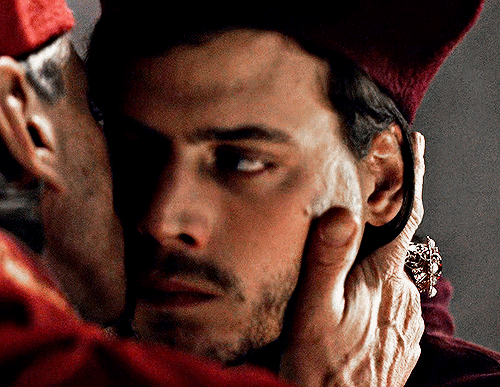
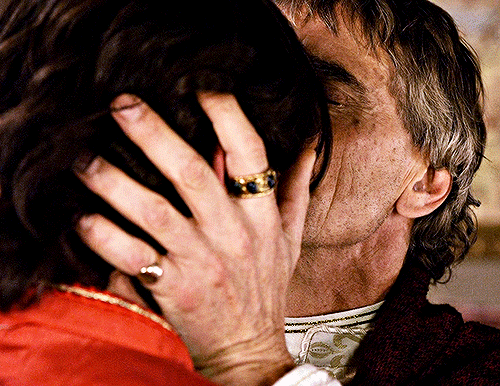
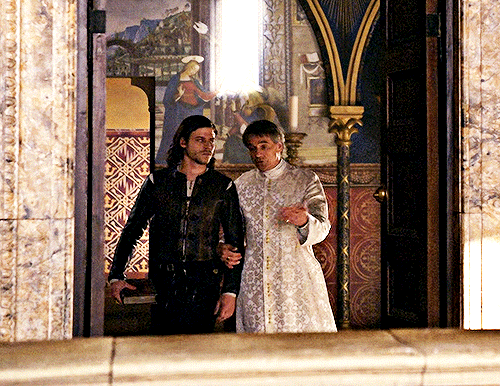
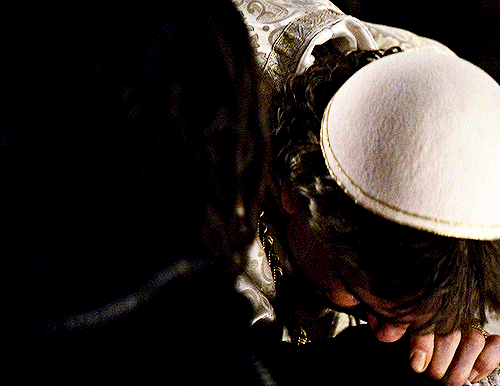
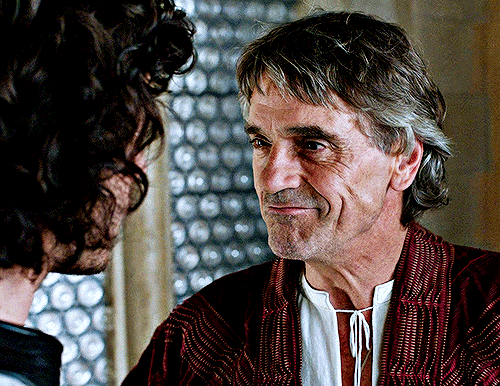
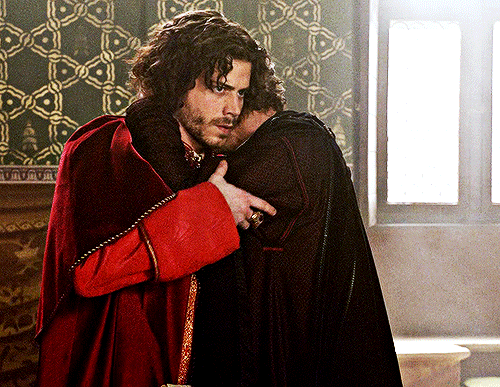
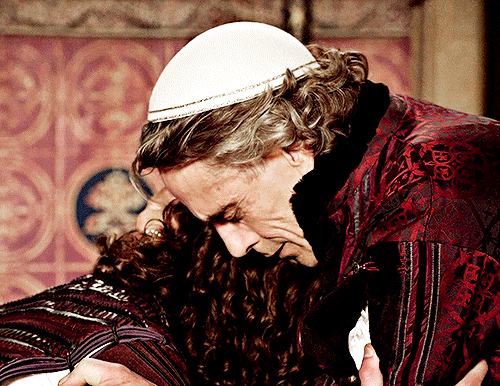
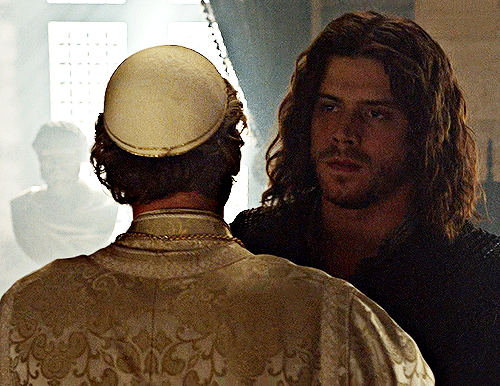
"You are too much like me. A man feels less… favour for his own image reflected." [Give him his sanction…His support…His powder, his army, his control. His love. He is made in your image.] "Do you think we don't know that? He is me. All the fire and the fury, the drive. The pitiless ambition. I look into his eyes, I see myself. Do you expect me to love that?" — Rodrigo Borgia, The Borgias (2011-2013) // "You aren’t my son, you’re myself. The love I have for you is awkward for both of us. But it is greater than any love known. Even if you can’t understand it.” — Agustín Gómez-Arcos, The Carnivorous Lamb (1975)
The relationship between Rodrigo and his children is complex, but his love for his eldest son, Cesare, is the most intense of all. Cesare is a representation of Rodrigo's own generational trauma and personal flaws. Rodrigo loves Cesare deeply, but at the same time, he feels frustrated with him because Cesare serves as a mirror reflecting Rodrigo's own self-worth issues and flaws. Cesare's presence reminds Rodrigo of his own shortcomings and self-loathing, which created a complex dynamic between them. His intense love for Cesare is intertwined with this frustration, stemming from the recognition of their shared imperfections. Despite these challenges, Rodrigo still holds Cesare in high regard and has chosen him as his successor because Cesare represents both the best and worst aspects of himself.
#it's interesting because while viewers may have initially believed that juan held a special place in rodrigo's heart and favored him...#it became obvious rodrigo may have used juan as a means to highlight cesare's flaws and to push him to grow and overcome his own limitation#a deliberate narrative device to subvert viewers' expectations and create a more nuanced storyline...#by not spoonfeeding the narrative as to question assumptions and delve into the complexities of family relationships#cesare borgia#the borgias#theborgiasedit#perioddramaedit#perioddramasource#tvedit#dailyflicks#weloveperioddrama#tvfilmsource#filmtvtoday#tvgifs#cinemapix#tvarchive#smallscreensource#filmtvcentral#by jen
313 notes
·
View notes